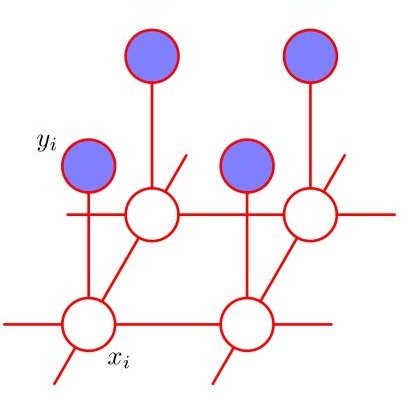Claiming causal inferences in network settings necessitates careful consideration of the often complex dependency between outcomes for actors. Of particular importance are treatment spillover or outcome interference effects. We consider causal inference when the actors are connected via an underlying network structure. Our key contribution is a model for causality when the underlying network is unobserved and the actor covariates evolve stochastically over time. We develop a joint model for the relational and covariate generating process that avoids restrictive separability assumptions and deterministic network assumptions that do not hold in the majority of social network settings of interest. Our framework utilizes the highly general class of Exponential-family Random Network models (ERNM) of which Markov Random Fields (MRF) and Exponential-family Random Graph models (ERGM) are special cases. We present potential outcome based inference within a Bayesian framework, and propose a simple modification to the exchange algorithm to allow for sampling from ERNM posteriors. We present results of a simulation study demonstrating the validity of the approach. Finally, we demonstrate the value of the framework in a case-study of smoking over time in the context of adolescent friendship networks.
翻译:在网络环境中提出因果关系推断,需要仔细考虑行为者在结果之间往往十分复杂的依赖性,尤其重要的是处理外溢效应或结果干扰效应。当行为者通过一个基本的网络结构连接时,我们考虑因果关系推断。我们的主要贡献是当基础网络不受观察,而行为者共同变异随着时间推移而演变时,因果关系模型。我们为关系和共变生成过程开发了一个联合模型,以避免限制性的分离假设和确定性网络假设,而这些假设在大多数感兴趣的社会网络环境中并不存在。我们的框架利用了高度一般的指数-家庭随机网络模型(ERM),其中Markov随机场和指数-家庭随机图模型(ERGM)是其中的特殊案例。我们介绍了基于巴伊斯框架的推断的潜在结果,并提出了对交换算法的简单修改,以便允许从ERM后方进行抽样。我们介绍了模拟研究结果,以证明方法的有效性。最后,我们在青少年友谊网络的案例研究中展示了框架的价值。




